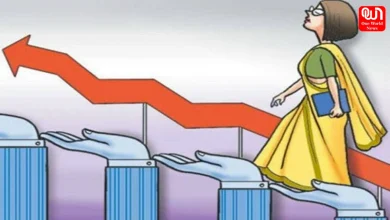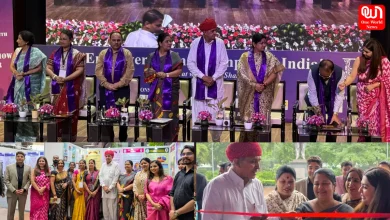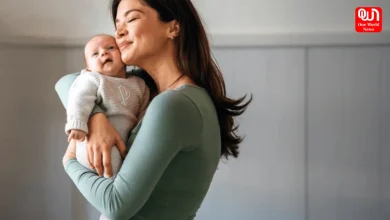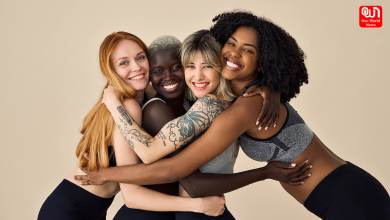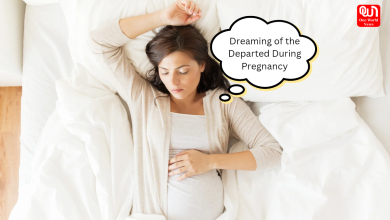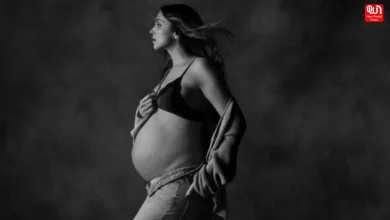Meet Kamala Sohonie, the First Indian woman to get PhD in science

How Kamala Sohonie became the first woman who overcame every difficulty and earned PhD in Science?
The world has always underestimated women. Whether it’s men’s insecurities or something else. No matter how far men themselves go, it is not necessary that their thinking towards women would be progressive. In history, many women have challenged society and fulfilled their dreams. One such woman was the first Indian woman to have a Ph.D. in science, Kamala Sohonie.
Who was Kamala Sohonie?
Kamala was born on 18 June 1911 in a highly educated family in Mumbai. Her father and uncle were among the first students to graduate in chemistry from the Tata Institute of Sciences (now the Indian Institute of Science). Since childhood, Kamala was interested in science. When Kamala also expressed her desire to study chemistry, her family members were not surprised. After topping her class in school, Kamala followed the footsteps of her father and uncle and took admission to Physics and Chemistry course at Bombay Presidency College.
Kamala got the highest marks in her batch in graduation. Kamala applied for Masters’s at the Indian Institute of Science. This was not only a ‘custom’ of her family, but it was also very important to fulfil her dream of becoming a scientist. At that time CV Raman was its head and it was considered as the best institute for the study of science.
When CV Raman did not give admission to Kamala Sohonie
Despite achieving good marks in graduation, Kamala was denied admission here. C.V. Raman did not want to admit her just because she was a woman. Despite repeated requests from Kamala’s father and uncle, C.V. Raman had the same saying that he would not admit any woman to his institute. Kamala’s intentions were strong. She met C.V. Raman and asked him the reason for not admitting her. Along with this, Kamala also challenged him that she would pass with distinction. When Raman was left with no choice, he admitted Kamala on the following conditions
Read More:- The 11 Best Romantic Places in Goa
- Kamla will not be allowed as a regular candidate.
- Kamala has to work late at night on the instructions of her guide.
- Kamala will not spoil the environment of the lab.
- Kamala accepted all the conditions for education, but she was deeply hurt by this sentence.
When Kamala achieved distinction in Masters
During her studies in the institute, Kamala gave everything to her studies. Kamala also found a strong and supportive teacher, M. Srinivasaiah. Under him, Kamala did research on milk, lentils, and legume proteins. Kamala was so dedicated to the work that Raman’s thinking also changed and he realized that women can go a long way in scientific research. In 1936, Kamala submitted her research and obtained a master’s degree with distinction. She got a research scholarship at the University of Cambridge, UK. The very next year Raman opened the doors of the Indian Institute of Science to women.
How was her life in the UK?
She arrived in the UK in 1937 and joined Derek Richter’s group of neurochemists at the Biochemical and Physiological Lab in Cambridge. After Richter left the job, Kamala joined Robin Hill’s research lab. The scientists were so impressed with the work that they advised her to join the lab of Nobel Laureate, Fredrick G Hopkins. Hopkins revolutionized the diet by discovering the need for vitamins. Hopkins also encouraged Kamala and she submitted her thesis in less than 16 months.
Read more:- Face Yoga for Beginners: What is it & benefits of practising it
How did she pave the way for other women in science?
Kamala was getting many offers from pharmaceutical companies of America but she decided to return to India in 1939. Kamala, who believed in the ideology of Mahatma Gandhi, wanted to co-operate in the freedom struggle. After working for a few days at Hardinge Medical College, Delhi, Kamala took up the position of Assistant Director in Nutrition Research Lab, Coonoor. Here she researched the role of vitamins in nutrition.
The Government of Maharashtra had opened the Department of Biochemistry at the Bombay Institute of Science and Kamala was selected for the post of Professor of Biochemistry. Kamala retired from work in 1969 and died in Delhi in 1998. Today, thousands of women have been able to fulfil the dream of becoming a scientist by following the path prepared by Kamala.

